The Secret of Kona's Amazing Voice
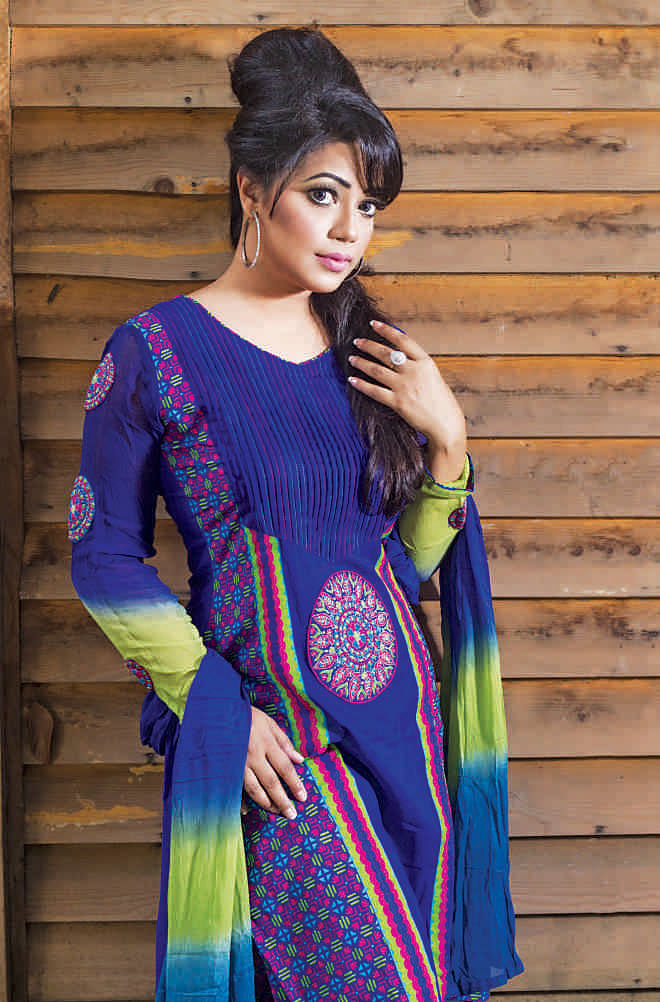
Most of the voiceovers you hear on television commercials or jingles in Bangladesh is most likely voiced by Dilshad Nahar Kona, the woman with an amazing voice. Kona's career in the media started at a very early age. She has done over a thousand live shows in Bangladesh and worked as a TV host and an MC throughout her career.
What is the secret to your amazing voice? Why did you choose a career in singing?
Since adolescence the people in my life used to come to me and pin their ears back while I sang and played the harmonium. After a certain stage once I had gained some knowledge about the art of singing, I was hooked on to it. From that point onwards, I knew in my heart that I would grow to become a singer someday. My situation was a bit different when I was a kid, because in our country most parents tell their children, 'First you do your studies and if you have something else going on, you can keep that as a hobby'. In my case, singing was the first priority and my family was very supportive about my enthusiasm towards singing; I also studied but the most important element for my singing career was my family support. They are the secret to my success. I also did some acting along the way, but did not stick to it.
Why did you discontinue acting?
I did some acting back in 2006. Acting needs a lot of diligence and work. Plus if I kept on acting then I don't think I would have been able to sing with so much focus. My mother was very enthusiastic about me getting into acting but I always saw acting as a hobby, my passion is to sing. Many people still tell me that I would have done very well if I continued acting. Since I always found acting to be a very tough thing to do while I was very comfortable with singing, I figured that singing was the right choice for me to develop and nurture. Now I try to do a little acting through my music videos. To be honest, when I do something I try to give my full concentration on it. You know, ONE BRICK AT A TIME!
What happened to the band you were involved with?
I started singing some jingles around 2000 and I also did some voiceovers for commercials. During that time, I did whatever I could whenever possible. So one day, after I did a voiceover for a mineral water commercial, Tutul bhai approached me and told me that he wants to form a musical band of girls. During that time he was not involved with the band LRB, back in 2003. I was not known to the public back then so I agreed to do it because I was determined to make something out of myself. Tutul bhai and Shopon bhai were the ones who formed the band. First me, then Nafisa, and then came Rumana and Tisha. We called ourselves 'Angels Four'. We started recording our songs and went onto release an album. The public thought that we were doing great and all but to be honest we knew what was really going on. Tisha did a commercial and became famous as a model, Rumana got married and Nafisa went on with her solo career. I was the only one left. We did not have much unity as a band. The band only did a few public shows and released one album. There was a lot of hype about us but we just could not continue. Later on, Nafisa committed suicide; the reason behind this is still an enigma to me.
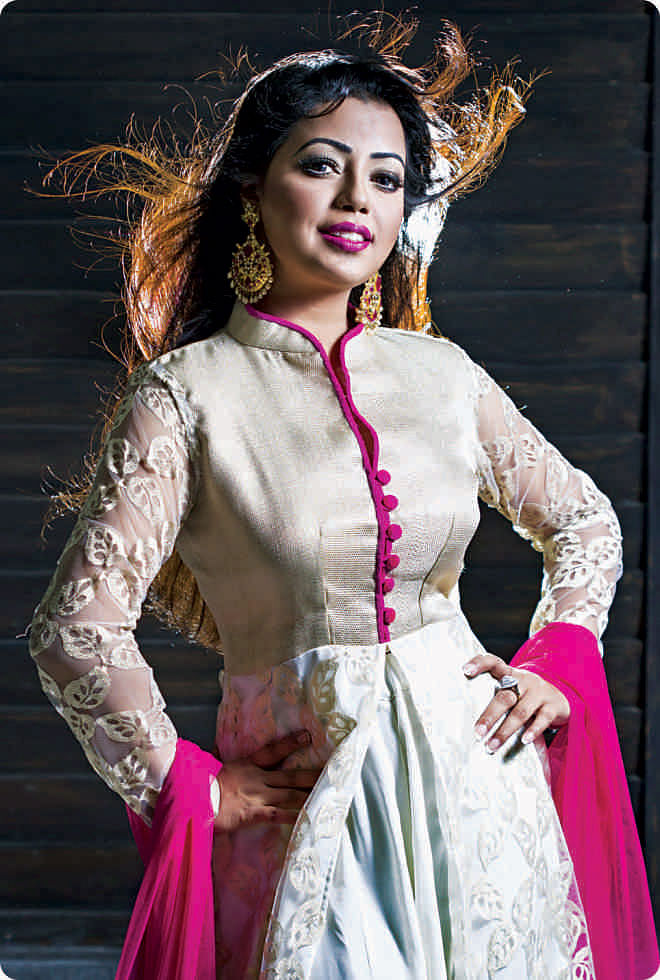
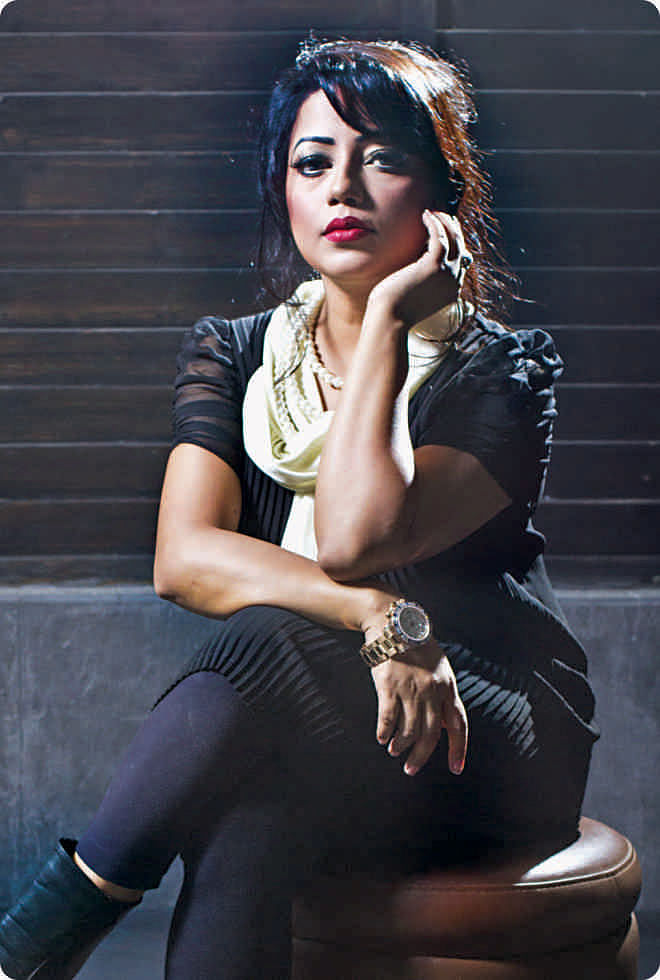
When did you start your career as a solo artist?
I started my solo career around 2006. My first album was named 'Jamitik Bhalobasha'. I also hosted a show on NTV called Tumader Jonno Bangladesh, which also helped me to come into the limelight. Then I started acting for a while and went back to singing soon. After I came back to singing, I did not look back; I stayed focused in that line of work.
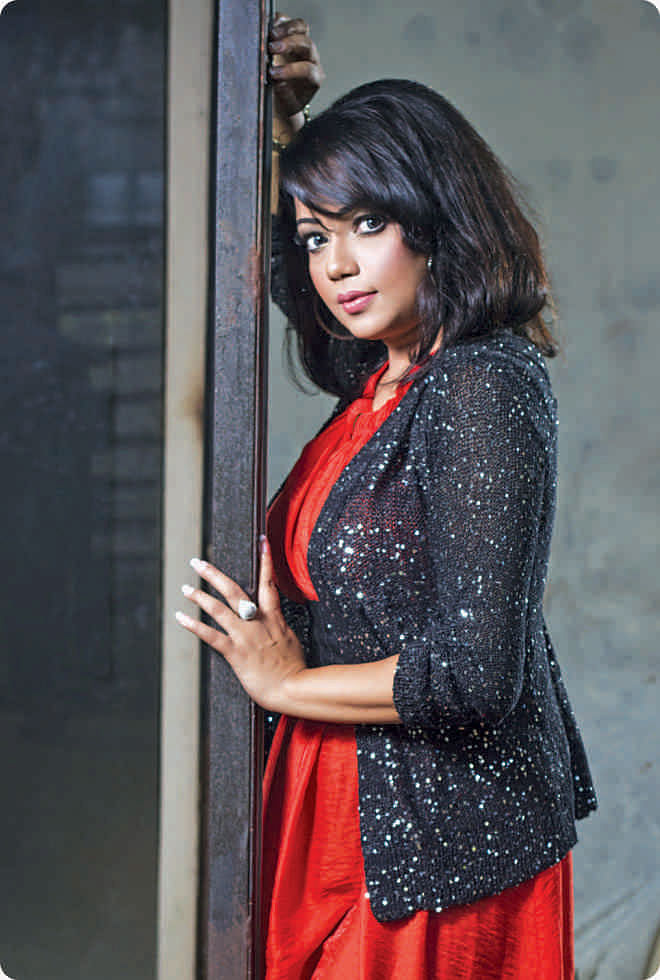
What changes have you seen over the time you have been working in this industry?
When I started singing there were analog studios, now you see digital technology being used in studios. But when I put on a pair of headphones and start singing on the microphone, it is all the same for me. Over time, my place has also changed - back then if I did not sing a song someone else would be called to sing it, but now if I tell the studio that I will do after a week or so they will keep the song for me. In the old days people use to buy cassettes, then came the era of CDs and now people use pen drives and download the songs over the internet. This has made a harsh impact on the industry. Artists are having trouble to survive in the industry these days. I consider myself to be lucky because I have gained a certain amount of popularity before this horrifying era, where people started downloading music for free. Deep in my heart I hope that something can be done so that people will be able to download songs but at the same time royalty deserved by the artists is ensured. How long can artists continue without receiving proper remuneration? You can see me doing a lot of music videos for my songs; I make those videos out of my own pocket. The videos don't give me any monetary benefits; I do it for the sake of maintaining a standard which I have set for myself. There are many artists in the industry who would say “A musician doesn't need to spend so much money” but I disagree because we need to spend money to give the audience some glamour in our work. Unfortunately many artists can't take the risk that I do because of financial reasons but I am thankful to the almighty that I am blessed with the ability to be different.
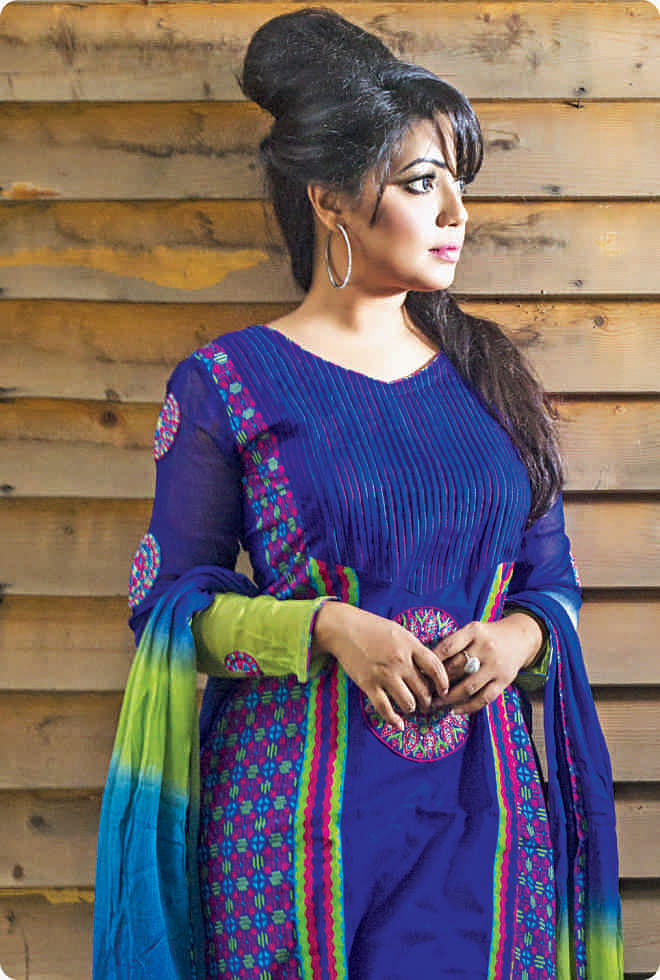
Who are some of your favorite artists? And what does it take for an artist to become established in this industry?
Fuad bhai, Habib bhai and Bappa Mazumder are my favorite artists. Working with Fuad bhai was a turning point for me, since the song ‘Borosha’ really uplifted my position in the public eye. I would like to add that I will be releasing my 4th solo album soon and Fuad bhai is involved in this project as well. The album will be released on 1st January, 2015. So as you were asking, a person needs to be trained to be a singer if he or she wants to become established in the industry. There are some exceptions like Asif bhai. He's God-gifted to be a rock star on stage! If a person is not trained properly they will only be in the limelight for a short period of time and people will forget them eventually.
What are some of your favorite genres of music?
I usually like melodious songs but I appreciate all genres of music. If I try to keep a specific genre in my mind that would distract me as a singer, so I don't try to get into any specific genre I am very ambiguous about fixed types and I love to experiment.
Catch the uncut version of Showbiz's Cover Interview and more on Radio Shadhin 92.4 FM every Saturday, 11 PM onwards.
Interviewed by Rafi Hossain,Narrated by Rayan Quddus

 For all latest news, follow The Daily Star's Google News channel.
For all latest news, follow The Daily Star's Google News channel. 



Comments